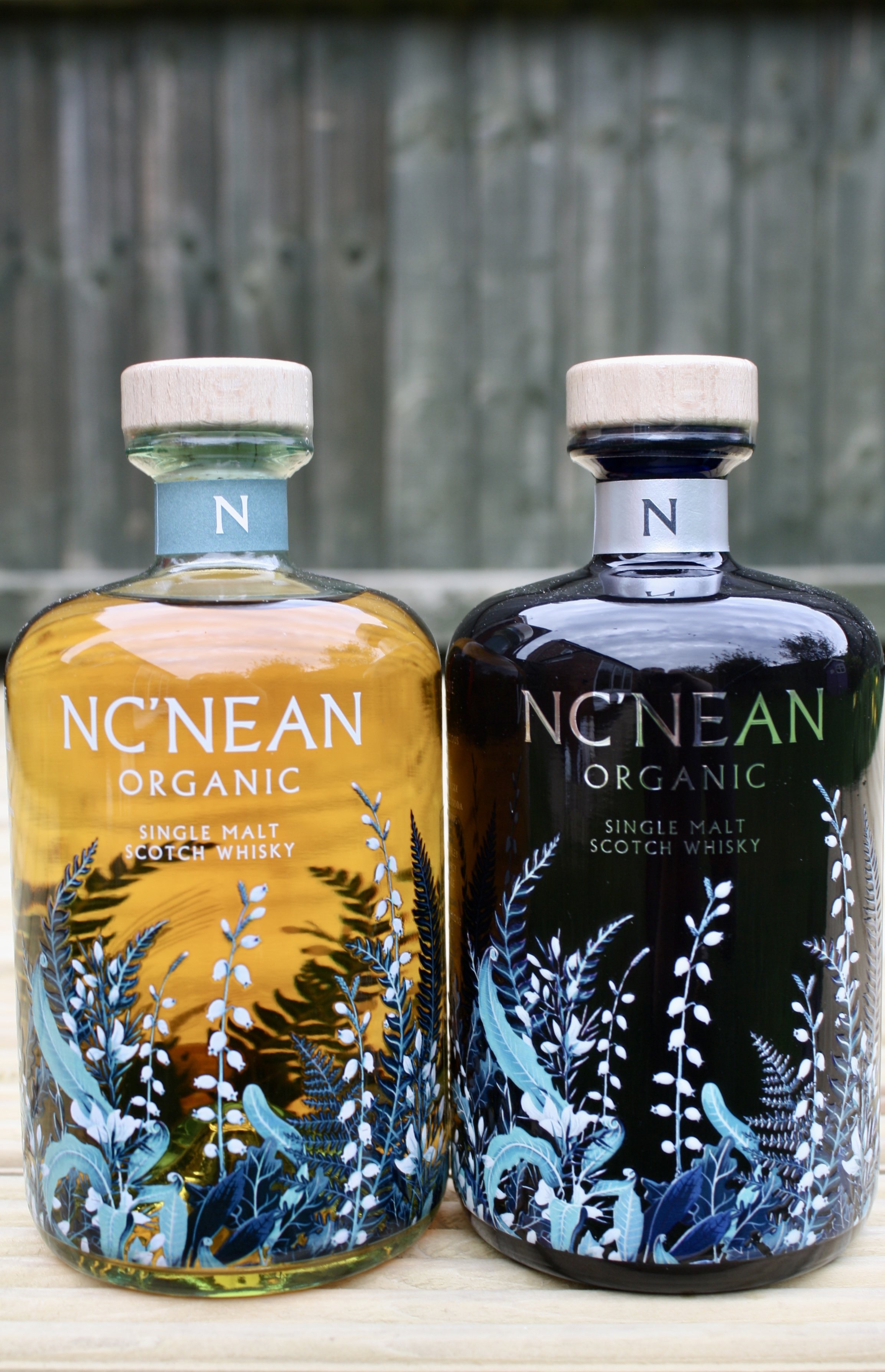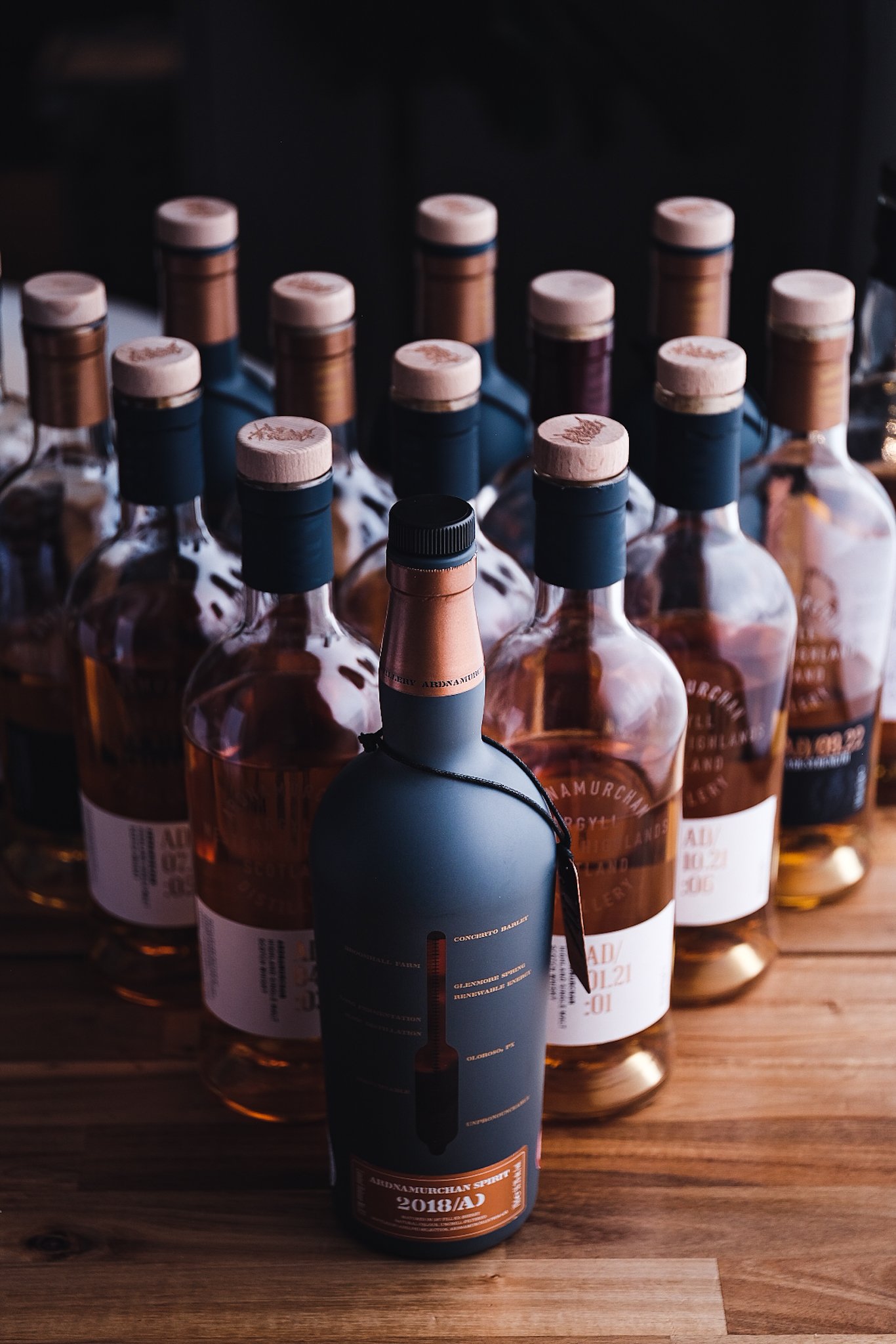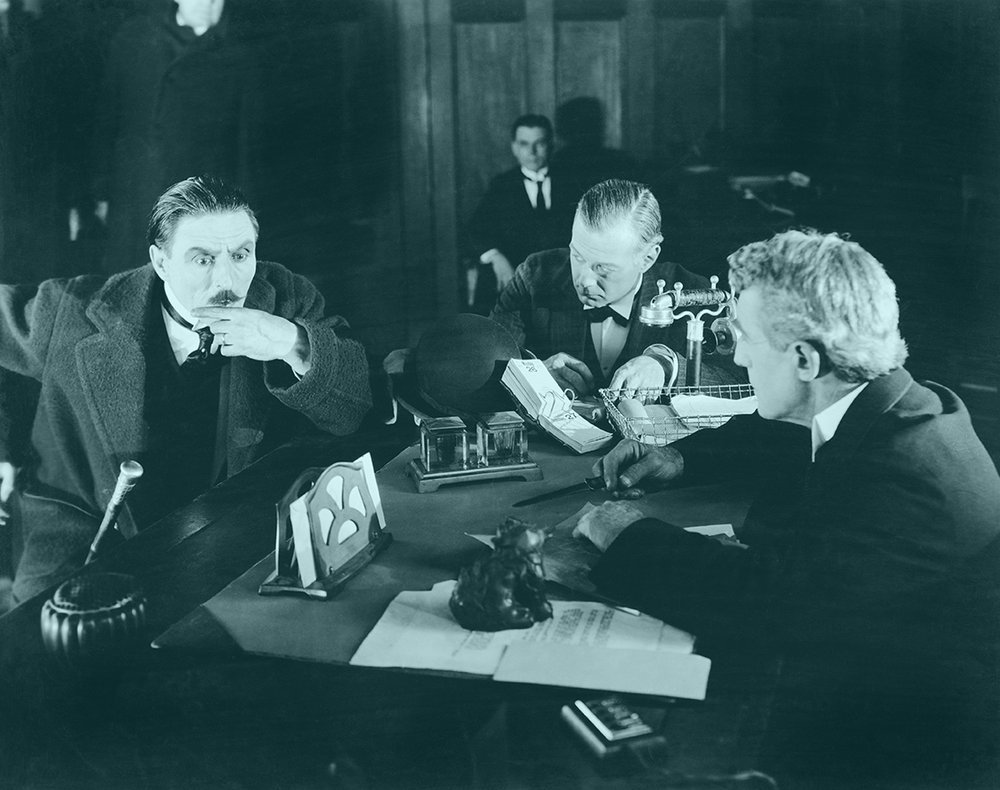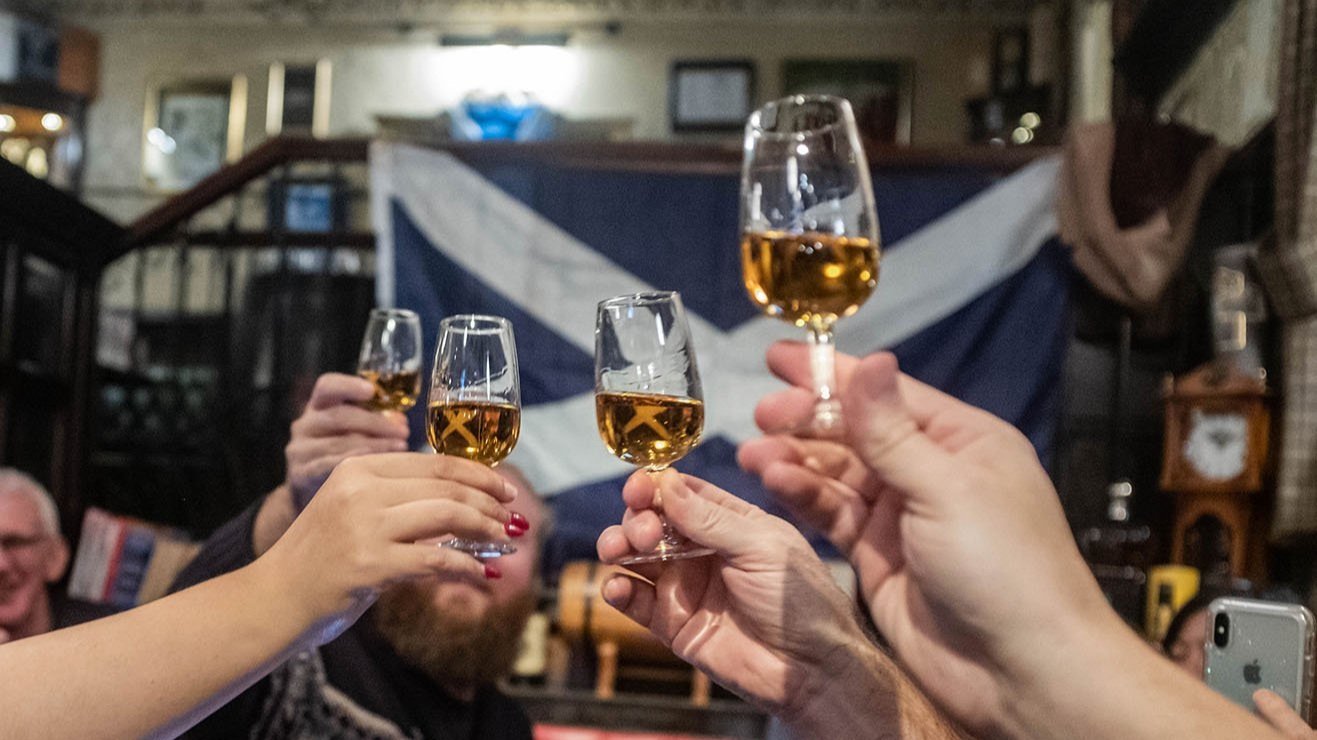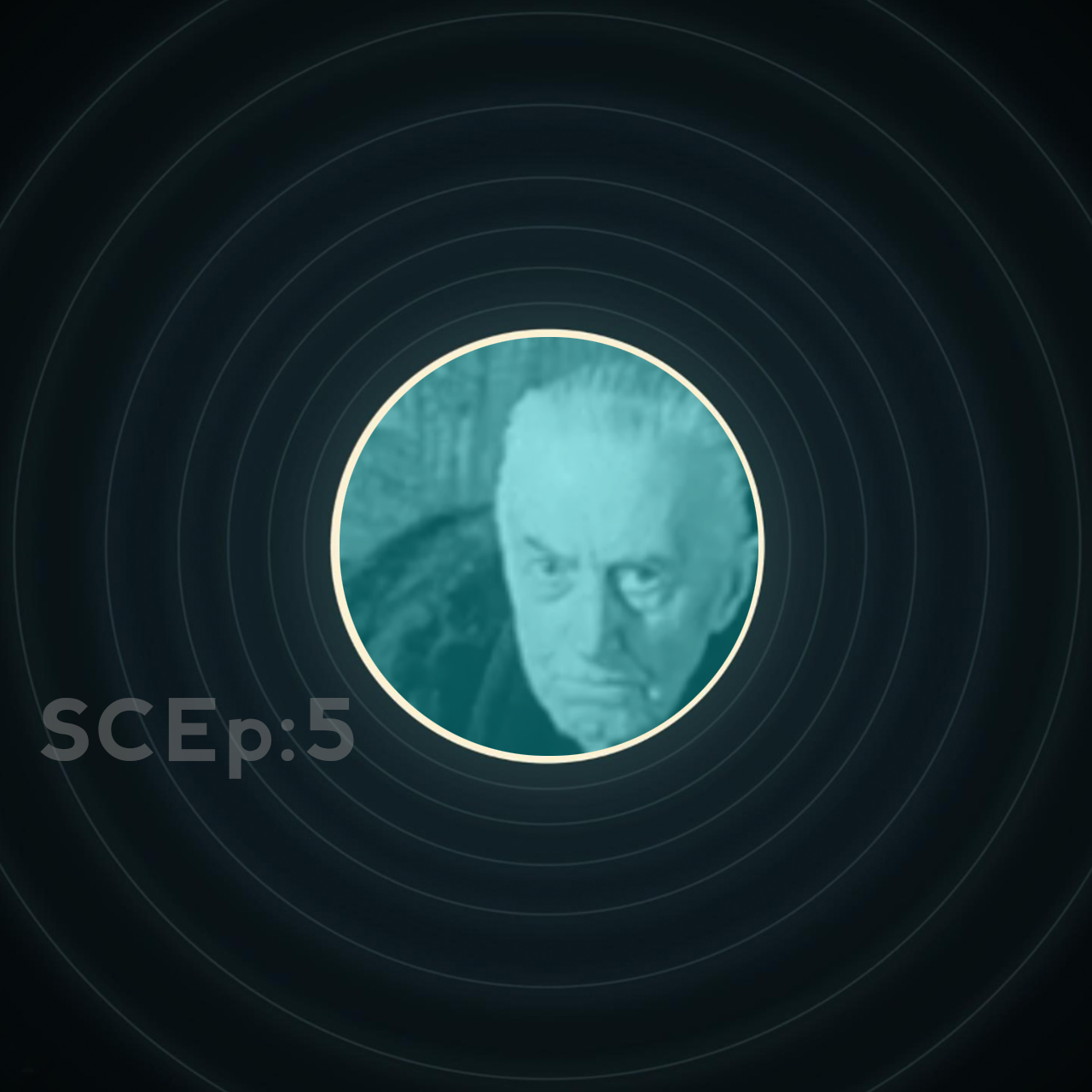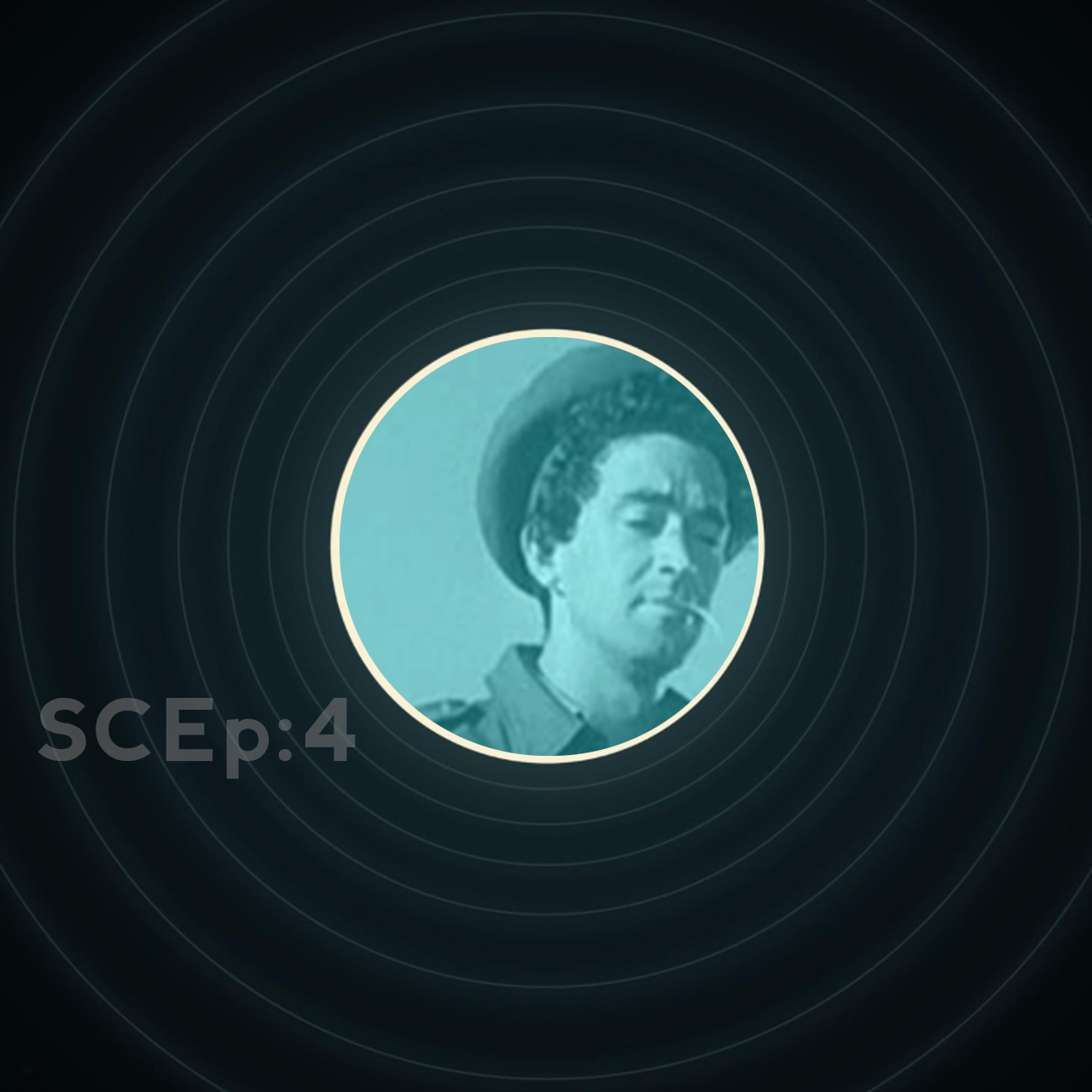Nc’Nean Single Malts Duo
NAS Single Malt & Quiet Rebels - Gordon | 46% & 48.5% ABV
Score: 6/10
Good stuff.
TL;DR
Trailblazing malt that’s growing in stature
How much do we care about Organic Whisky?
I guess that depends on the individual. For me personally, organic is a nice thing to have, but ultimately it isn’t a strong consideration when I am buying whisky.
I’m just being honest, and I know I’m far from alone having that outlook, but in a world where we’re all becoming more aware of our environment and the damage human beings are causing, the organic and eco-conscious ethos that Nc’Nean base their entire distillery around can be viewed as nothing but a positive.
Although the word organic is what stands out with Nc’Nean’s branding, they take things much further than simply using 100% organic Scottish barley, which is grown in Aberdeenshire and Fife. Their glass bottle is made from 100% recycled glass. The distillery is B Corp certified and carbon net zero, with the boiler that powers the stills using sustainably sourced wood chips from a local forest. Even the tamper seal on the bottle is made from wood pulp extracts and can be thrown in your food waste bin. There’s more if you want to dig deeper on their website, but I think you get the picture by now.
According to the Soil Association, the market for organic products rose by 1.6% in the past year, and has risen for the 11th consecutive year. Despite cost of living pressures meaning many supermarket consumers have had to turn away from organic in favour of lower priced options, there is still a clear upward trend for organic products on the whole.
Producing organic whisky isn’t an easy or straightforward process. The crop yields are lower than with non-organic barley, and it produces less new make spirit. This is due to the grain being smaller and the nitrogen levels being higher, which means there is less starch content in the barley. You have to be passionate about what you are doing to accept such challenges in a very competitive whisky market, because you are putting yourself on the back foot from the off, albeit with potential gains from the aforementioned organic conscious market, which is currently not exactly spoiled for choice with whisky options.
Benromach and Deanston have been producing batches of organic whisky since 2000, and Bruichladdich since 2006, with regular organic releases appearing. Welsh distillery Dà Mhìle claim to have bottled the first ever certified organic whisky when they commissioned Springbank to produce one in 1992, which was subsequently bottled in 1999. You can still buy a bottle for the princely sum of £550, and they now produce their own organic whisky. There are others if you search for them, but most distillers have yet to embrace organic in any shape or form.
Nc’Nean’s keen environmental view means they also don’t use any peat, something which I personally think is a disadvantage for any new distillery that has plans to release whisky at a young age, rather than waiting for the spirit to mature for close to a decade or more in casks. Peaty whiskies tend to work better at younger ages than non-peated, adding further complexity to the finished product, and perhaps it could be said helping to paper over some of the cracks in the young raw spirit. There’s a reason why Billy Walker has gone down the peated route for his first young releases of GlenAllachie which were distilled under his care. Arthur wrote an excellent piece on peat and sustainability, which featured Nc’Nean’s founder Annabel Thomas.
Environmentally focused businesses are a sector celebrities have been keen to invest in recently. Comedian and actor Ricky Gervais has announced he has invested in north Yorkshire based distillery Ellers Farm, which currently makes vodka and gin, as well as single malt whisky, which isn’t ready yet. The eco-friendly nature of the business was seen as a key factor for him. Similarly, Leonardo DiCaprio has invested in a cultivated meat company called Mosa Meat, and a sustainable luxury watchmaker called ID Geneve. That’s just a couple of examples, with other names such as Drake, Beyonce and Bono all investing in companies with environmentally friendly credentials. Whether their motives are financial, ethical or image based, it’s clear there is a strong attraction to these type of businesses, and that is likely to influence consumers. Even Nc’Nean counts former longtime University Challenge presenter Jeremy Paxman as an investor.
The Scotch Whisky Association are aiming for net zero by 2040, so there are plenty of distilleries who will need to get on board with this sooner rather than later. More and more we witness reports about the destruction humans have caused to this planet, and how we need to be doing more to prevent further damage, and even reverse a lot of what has already been done. With that in mind, and consumer demand increasing, I think it would be a misstep for any distillery, Scottish or otherwise, to not think of sustainability as a key factor in their mission statement going forward. At the moment, Nc’nean appear to be ahead of that game.
Review 1/4 - Ramsay
Nc’Nean Organic Single Malt, Batch SB20, 46% ABV
£55 rrp and widely available
The most beautiful wee dumpy bottles. The whole look of the packaging is on point with the distillery’s ethos. They do make pouring a slight challenge, with the small neck and lipped rim, and I managed to spill a few drops of the first couple of pours, but I soon got used to that and spillages aren’t a problem now.
This is matured in a combination of red wine, ex-bourbon and sherry casks. You can find the details of all of Nc’Nean’s current and past bottlings on their website, and looking at this particular batch, we are told in precise detail that it is 55% STR red wine, 43% ex-American whiskey casks (which I read as bourbon) and 2% oloroso sherry. The youngest casks were filled between June and October 2019, with the older component hidden due to SWA regulations. That means if the whisky was bottled in October this year, it could be four years old, or it might be just under that at three. I can’t see a bottling date to confirm either way. Distillation at the distillery commenced in early 2017, so the oldest the mystery component can be is six.
It is bottled at 46% ABV and 10,360 bottles are in this batch.
Score: 4/10
Some promise.
TL;DR
A pleasant easy sipper, but doesn’t set the pulse racing
Nose
Light and fruity – summer fruits and green apple peels. There’s a good amount of espresso coffee coming through the fruit, along with milk chocolate, vanilla, wood varnish, putty and toasted oak.
Palate
Light and fruity again, and a little sprightly and peppery. There’s more of those red fruits in here, but it is soon overtaken by sharp and bitter citrus lemon and oak, along with more of the coffee I was getting on the nose, which builds as it develops and becomes creamy with vanilla, liquorice and toasted hazelnuts.
The Dregs
I would describe the core release at this stage as a pleasant easy sipper. It’s fairly simple, but with light, fruity flavours that people will enjoy, although I do find it is balanced slightly too much towards the astringent side on the palate for my preference.
Some would argue £55 is too much for three to four year old whisky, but many non-organic operations are charging similar, if not more, and Nc’Nean have to contend with the higher costs and lower yields the organic barley provides. As with other organic produce, if you want it, then it comes at a cost. In this case, it doesn’t feel unreasonable at all, and I have noticed it at closer to £50 with a number of retailers.
The use of STR red wine casks shows all the hallmarks of a new distillery that the late Dr Jim Swan has had a hand in, but there is a good proportion of ex-bourbon casks too, and I am getting the impression that the fruitiness the distillery team are trying to get in the new make is coming through plentifully. I would love to see how the new make compares to what I am finding in the glass, or maybe something matured in a refill bourbon cask.
Score: 4/10 RT
Review 2/4 - Ramsay
Nc’Nean Organic Single Malt, Quiet Rebels, 48.5% ABV
£80rrp and generally available
A shade darker than the core release, but not overly so. The bottle you see in the images is darker glass, rather than the colour of the liquid. This is matured in 74% STR red wine casks, 19% ex-sherry (sherry type not specified) and 7% ex-Rivesaltes. The younger components were distilled between September 2018 and July 2019. We have a slight increase in the ABV at 48.5% with 8,688 bottles released.
It is named after distillery manager Gordon Wood, and is part of a series of Autumnal releases which is dedicated to a member of the team at Nc’Nean.
Score: 6/10
Good stuff.
TL;DR
Much more of a cask story, but a good one
Nose
The coffee note I was getting amongst the fruitiness of the core release is here again, but it is louder and prouder and combined with full fat cream. In fact, it’s very creamy. There’s icing sugar, floral freshly washed linens, blackcurrant, orange zest, honey and linseed oil.
Palate
Rich, jammy red fruits dusted in icing sugar initially, with the freshly roasted espresso coffee note that has been a theme throughout never been more apparent than it is here, and it comes with dark chocolate and a little aniseed. That coffee note becomes so overt in the middle of the development, that it overpowers most of that initial fruitiness, but it is nevertheless a nice flavour, with a balance between sweet and bitter. As it begins to subside, the finish becomes creamier and we start to get some of the red fruit coming back, with coconut macaroons and milk chocolate at the end. A pleasant journey on the palate, and one the coffee lovers will certainly enjoy.
The Dregs
The Quiet Rebels – Gordon is a better proposition, but comes with a higher price tag at around £80. That’s plenty of money for a whisky of its age, and it isn’t even cask strength, which would justify it a little more. It is much more of a cask story than the standard release, but those casks are adding flavour and complexity to the young liquid, and I am enjoying it, particularly on the palate.
The batch size is not too much smaller than the core release, but it has been priced £25 higher. At that price point it is going toe-to-toe with a lot of big hitters. I’m thinking of the likes of Bunnahabhain 12 cask strength, Benromach cask strength and Glen Scotia Victoriana. Although it is a good whisky, I don’t think it can compete with those. If you look at other new distilleries, Lindores Abbey, Lochlea, Torabhaig and Ardnamurchan are all producing cask strength versions for less than Nc’Nean’s 48.5% release. I think it should be more reasonably priced.
Looking forward, Nc’Nean have thought about the future with their whisky and are distilling a fruity style of whisky to be enjoyed young, which is what we have in these bottles, and an older style with lower cut points which will benefit from a longer maturation. That’s certainly something to keep an eye out for.
A huge thanks to Nc’Nean who offered these bottles directly. Wally canvassed for an available and willing writer and I put my name forward. They were subsequently diverted to me without condition or obligation. I shared samples with Drummond so he could pitch in with his thoughts. You can read his take below.
Score: 6/10 RT
Review 3/4 - Drummond
Nc’Nean Organic Single Malt, Batch SB20, 46% ABV
£55 rrp and widely available
I’m coming to Nc’Nean with few preconceptions, other than their well-documented and very laudable efforts at sustainability, which Ramsay well summarises.
Arthur’s deep dive into peat and sustainability finds him asking owner Annabel Thomas about Nc’Nean’s decision to not use peat in their malting process. Her answers give food for thought about the role of this natural fuel that enhances many of our favourite malts in some of the most crucial ways and even if you disagree with Nc’Nean’s decision on this front from a flavour perspective, you can at least understand it. In the broader landscape of whisky production, though, there’s little argument that NcNean is at the forefront trying to make whisky production - a highly resource-intensive process - easier on the environment that we all share.
It's of course true that peat isn’t necessary to make a whisky interesting. At younger ages – as Nc’Nean currently is – peat integrates a flavour punch that dissipates over time, and so the decision to go peat-less could be seen as a curious one especially for early years of a new distillery and the frequent necessity of releasing young whiskies.
Score: 5/10
Average. In a good way.
TL;DR
Pleasantly surprising easy sipper
Nose
Sweet, light, floral, and slightly buttery. Light fruits, something like small berries on a green vine. A hint of the STR wine casks come through here with a slight but present oakiness.
Palate
Sweet and bright. The youth of the spirit comes through, with some gentle heat but not in a “spirity” way. The influence of the STR casks and ex-bourbon casks arrive together and develop in a parallel and complementary way, with notes of vanilla alongside the light red wine qualities. The floral qualities on the nose give way to more buttery qualities on the palate. A maltiness that almost transforms into a distant chocolate quality in the mid-palate finishes into an ever-so-slightly fusile/alcohol burn quality complemented by some lingering sweetness and stewed fruits.
The Dregs
Perhaps one reason why I’ve come to Nc’Nean with few expectations is that, for me at least, it has slightly flown under the radar. Not that I’d been unaware: I’ve read their story about their passion about producing organic whisky, various interviews with Annabel Thomas, and have seen the various releases come out over the last couple of years. But in terms of sheer time and coin, I simply haven’t given Nc’Nean the time it probably deserves in my quest to try as many new distilleries’ products as I can.
Well, Nc’Nean is no longer absent from my radar. This core release is pleasant, easy-drinking, and yet has enough going to keep my interest. At the same time, this is clearly young whisky, and it’s not the most complex young dram I’ve ever had. But then, if you approach this with that in mind – that this is a young whisky from a young distillery – then I think it holds its own against many other younger whiskies from newer distilleries. Given a choice of core release dram between, say, Lochlea, Lindores, and Nc’Nean, for example, I think I’d be hard pressed to choose either of those over this Nc’Nean. This isn’t a review of those other two obviously and so slightly unfair, but just to illustrate the point that I’m pleasantly surprised how this holds up against its competition that I’ve recently tried at tastings and festivals. If you get a chance to try this, you should.
Score: 5/10 DD
Review 4/4 - Drummond
Nc’Nean Organic Single Malt, Quiet Rebels, 48.5% ABV
£80rrp and generally available
Score: 6/10
Good stuff.
TL;DR
A nudge more interesting and suggestive of good things to come
Nose
Darker on the nose than the 46% release, perhaps due to the higher percentage of STR red wine casks in this batch. Barrel char, perfumed red berries, honey, and more of a perhaps bready note in contrast to the buttery quality on the 46% release. A distant nutty quality.
Palate
Malty-er, oilier, and a bit punchier than the 46% release. Nice texture and mouthfeel. Slightly charred quality alongside honey and stewed fruits (reminiscent of the kind I get on Craigellachie). Sweet red wine red fruits (red grapes, red berries, cherries) throughout here, oak, a slight green wood quality but not prominent. Drier than the 46% release. Sweetness, fading maltiness, and some alcohol heat on the finish.
The Dregs
The larger proportion of STR red wine casks clearly make their presence known here, as this Gordon bottle is sweeter than the 46%, yet simultaneously bringing that charred cask quality as well which balances things away from being overly sweet.
The Gordon release has a bit more to offer than the core release, perhaps down to the extra ABV, but also likely due to the extra plump of the STR casks. In this sense, then, the Gordon release is more of a cask-driven experience than perhaps the core release is. Yet I don’t hold that against it.
The higher proportion of ex-American bourbon casks seem to allow for more of the spirit quality to shine through in the 46% release. I’m enjoying the Gordon release a bit more at the moment even though it’s more cask-driven, but there’s not a whole lot of daylight between my enjoyment of either. 5/10 and 6/10 might seem light damning with faint praise, but if you know our scoring system you’ll know that we use the entire 1-10 scale – from the bottom to the top.
In that sense, 5 and 6 out of 10 perhaps doesn’t do full justice to the experience that I’m enjoying with these two drams. If Nc’Nean has also flown under your radar, give it a try if you get the chance. There’s potential here that I’ll now look forward to watching develop, and if these two young drams are any indication, we’ll indeed have much to explore in the years to come.
Score: 6/10 DD
Tried this? Share your thoughts in the comments below. RT / DD
-
Dramface is free.
Its fierce independence and community-focused content is funded by that same community. We don’t do ads, sponsorships or paid-for content. If you like what we do you can support us by becoming a Dramface member for the price of a magazine.
However, if you’ve found a particular article valuable, you also have the option to make a direct donation to the writer, here: buy me a dram - you’d make their day. Thank you.
For more on Dramface and our funding read our about page here.

